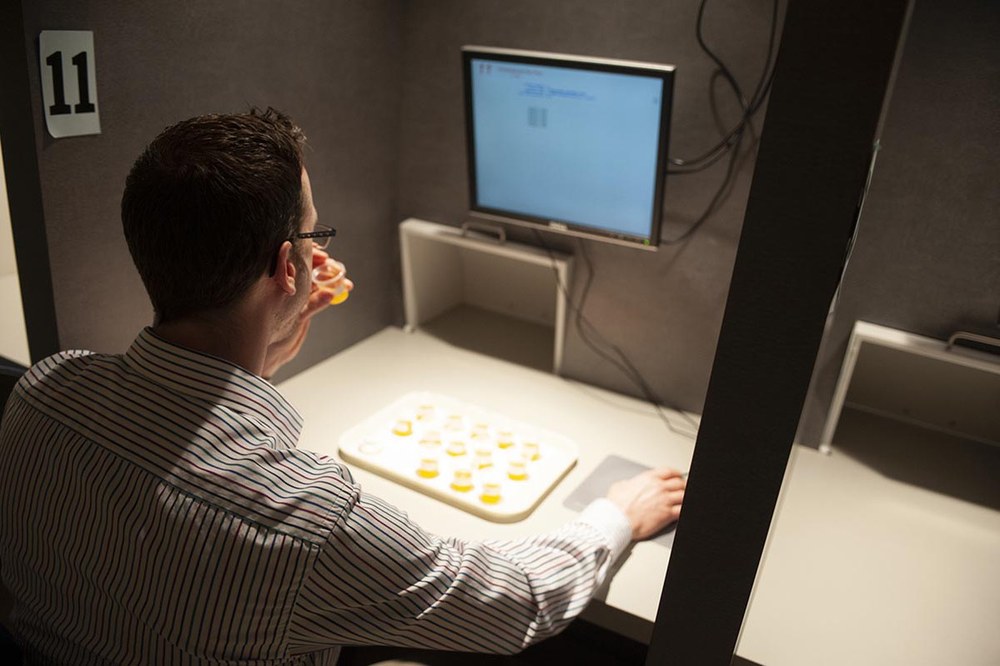Researchers measure and evaluate the characteristics of foods and nonfood products that make them appealing to consumers, helping producers better understand and cater to their potential markets.

Sensory and Consumer Science research
Individuals make food choices each day based on past experience, food flavor, personality traits, habitual intake, ethics, and responses to environmental cues. These include decisions include what and how much to eat. Even young children make individual food choices in at school or day care, in grocery stores, and at social events.
Sensory and Consumer Science measures and evaluates the characteristics of foods and non-food products that make them appealing to consumers. This allows food and consumer goods companies to optimize their products to appeal to various market segments, including children. Methods from Sensory and Consumer Science can also be used to study humans, and how biological variation, genetics, personality traits, attitudes and beliefs predispose individuals to consume or avoid foods that have the potential to impact health and wellness.
Researchers in the Department of Food Science working in the area of Sensory and Consumer Science, Food Choice, and Eating Behavior.

